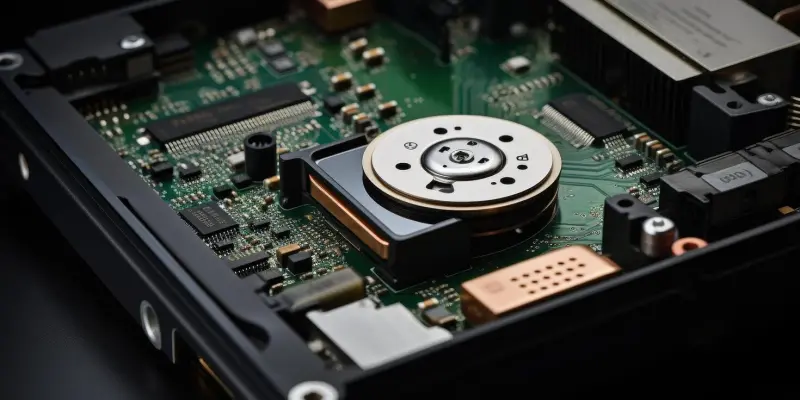In an era characterized by rapid technological advancements and growing data demands, Seagate has announced ambitious plans to evolve its storage technology to meet the future requirements of the burgeoning AI sector. AI companies require massive storage capacities to support intricate algorithms and expansive data sets, necessitating innovation in data storage solutions. Seagate is responding to this demand by advancing its heat-assisted magnetic recording (HAMR) technology to develop 100-terabyte hard drives by 2030. This technology utilizes a laser diode on each recording head, significantly increasing data density. Currently, Seagate’s largest drive is the 36TB Exos M model, indicating considerable growth potential in the company’s upcoming offerings. As Seagate sets its sights on branding itself as a leading AI company, the push for greater storage capacity becomes pivotal in capitalizing on rising AI industry revenues.
Environmental Considerations
Seagate is keenly aware of the environmental implications tied to the evolving data storage landscape, particularly concerning AI operations known for their energy-intensive processes. In an effort to address these concerns, the company is actively pursuing initiatives to reduce power consumption per terabyte while enhancing data density. This strategic move aims to diminish the environmental impact caused by expansive data centers. Additionally, Seagate is integrating renewable energy sources into its manufacturing processes to further minimize its ecological footprint. This alignment with sustainable practices reflects broader trends within the tech industry, where companies are required to balance innovation with environmental responsibility. By focusing on both technological growth and environmental stewardship, Seagate positions itself favorably amidst industry expectations that demand sustainable solutions alongside performance advancements.
Meeting AI-driven Storage Needs
Looking ahead, Seagate has entrenched itself deeply in addressing AI-driven storage requirements, which are set to grow exponentially as AI models become more complex. Their continuous investment in HDD-based solutions and groundbreaking technology underscores a strong commitment to these evolving needs. Seagate’s approach not only caters to increasing storage demands but also aligns with ecological goals, ensuring their solutions are sustainable. This forward-thinking strategy highlights Seagate’s gravitation toward playing a pivotal role in future AI data centers. As businesses seek reliable and environmentally conscious storage options, Seagate’s dedication to progressive innovations and sustainable practices could redefine the standards within the AI-driven tech industry. While Seagate looks toward 2030 with plans that emphasize advanced storage capacities, the company maintains a clear focus on delivering pragmatic, eco-efficient solutions commensurate with emerging tech expectations.

